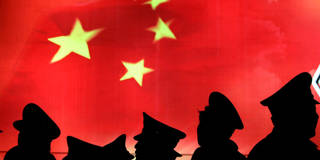The global financial crisis, which began ten years ago this month, showed that the Western-led rules-based international order’s long-term survival is not inevitable. Should that system collapse, nobody stands to lose more than Europe, which has long thrived on cooperation, and suffered under competition.
MADRID – The global financial crisis, which began ten years ago this month, showed that the Western-led rules-based international order’s long-term survival is not inevitable. It is often assumed that if and when the United States loses its place as the global hegemon in that system, China will be the country to lead the world. But what would a Chinese-led order look like?
Events this summer hinted at an answer. In June, a subsidiary of the Spanish oil company Repsol began drilling an offshore well within Vietnam’s exclusive economic zone in the South China Sea. China immediately protested, first by canceling a joint China-Vietnam security meeting, and then by reportedly threatening military action against Vietnamese positions in the Spratly Islands. Unable to rely on American support, Vietnam kowtowed to the Chinese, ordering Repsol to halt its exploratory drilling. It was a victory for naked power – and a defeat for shared rules.
Then, in July, just before the G20 meeting in Hamburg, Germany, news broke that Chinese Nobel Peace Prize laureate Liu Xiaobo – who had been detained by the Chinese government for most of the last decade over his calls for democracy – had been diagnosed with late-stage liver cancer. Liu requested permission to receive treatment abroad, but the Chinese government denied him that dignity. He died shortly thereafter.

MADRID – The global financial crisis, which began ten years ago this month, showed that the Western-led rules-based international order’s long-term survival is not inevitable. It is often assumed that if and when the United States loses its place as the global hegemon in that system, China will be the country to lead the world. But what would a Chinese-led order look like?
Events this summer hinted at an answer. In June, a subsidiary of the Spanish oil company Repsol began drilling an offshore well within Vietnam’s exclusive economic zone in the South China Sea. China immediately protested, first by canceling a joint China-Vietnam security meeting, and then by reportedly threatening military action against Vietnamese positions in the Spratly Islands. Unable to rely on American support, Vietnam kowtowed to the Chinese, ordering Repsol to halt its exploratory drilling. It was a victory for naked power – and a defeat for shared rules.
Then, in July, just before the G20 meeting in Hamburg, Germany, news broke that Chinese Nobel Peace Prize laureate Liu Xiaobo – who had been detained by the Chinese government for most of the last decade over his calls for democracy – had been diagnosed with late-stage liver cancer. Liu requested permission to receive treatment abroad, but the Chinese government denied him that dignity. He died shortly thereafter.